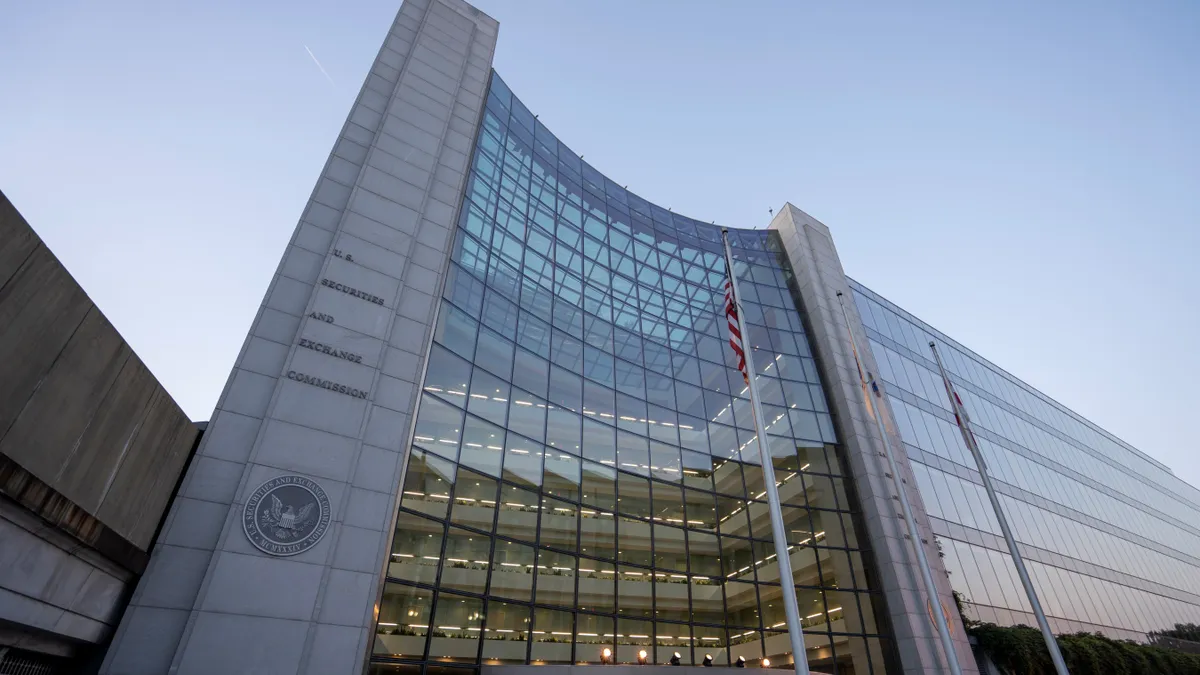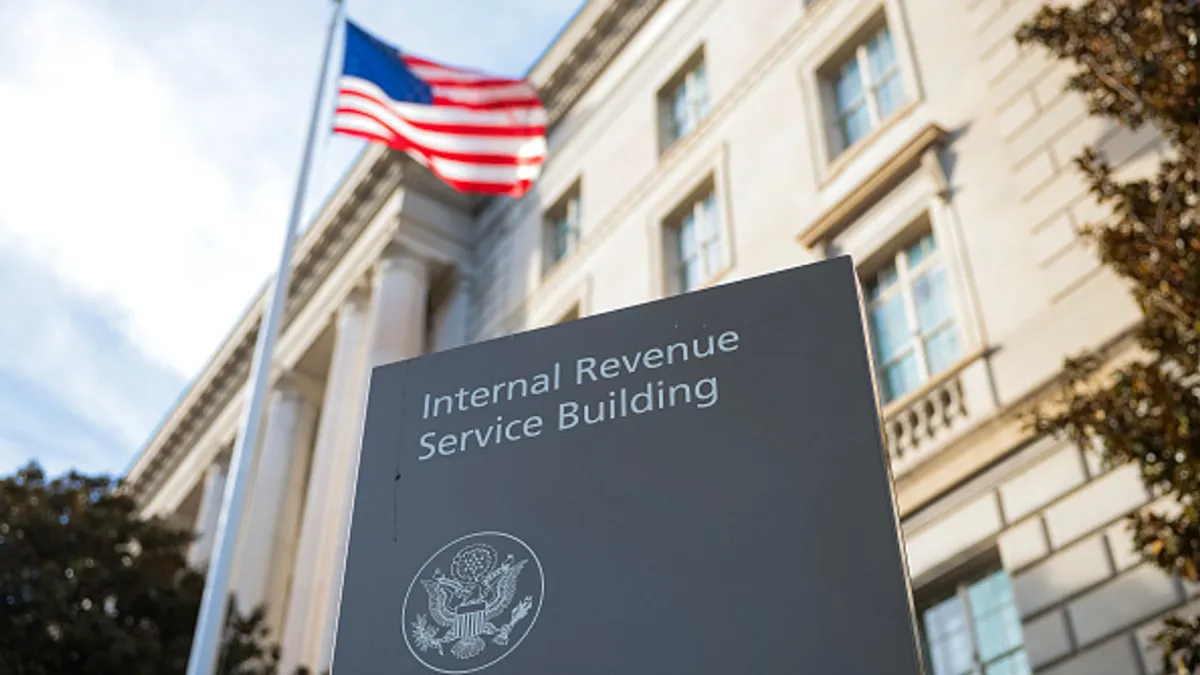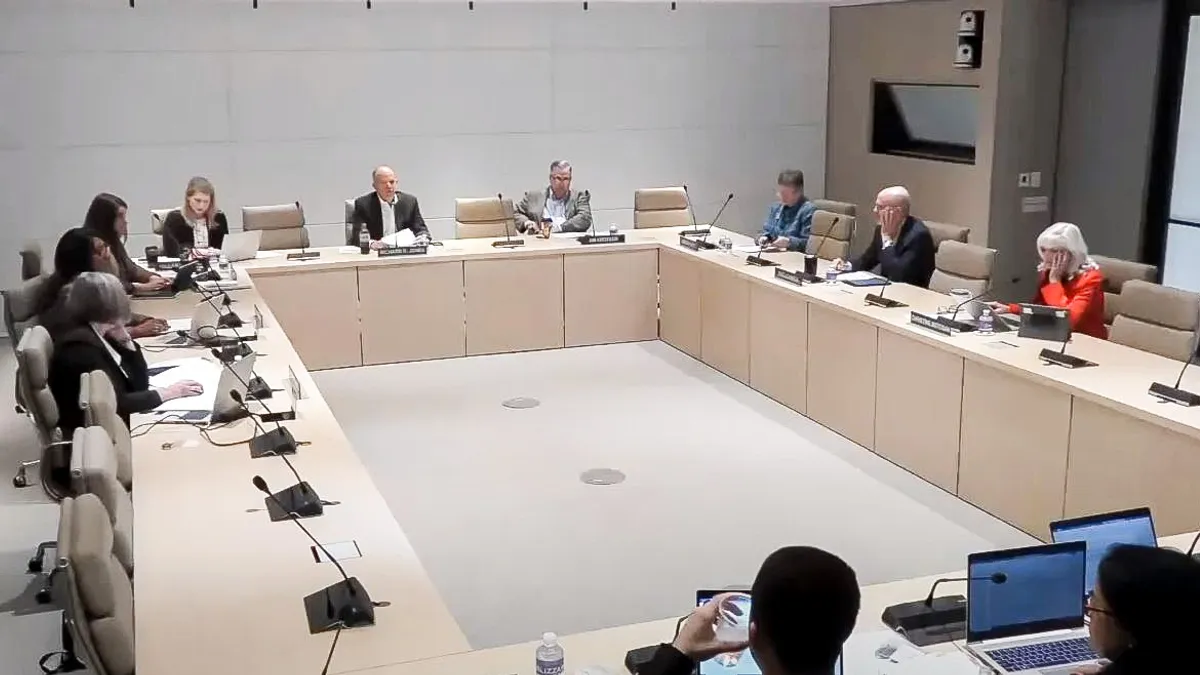The Securities and Exchange Commission is expected to be busy over the next several weeks as it sorts through initial public offerings that piled up during the now-ended federal government shutdown.
While the government was closed, the SEC’s Division of Corporation Finance received over 900 registration statements — filings used to register securities offerings, including IPOs, the agency said Thursday in a notice posted on its website.
“It’s indicative of a lot of market activity, even in a shutdown environment,” Rachel Phillips, a capital markets partner at law firm Ropes & Gray, said in an interview.
The Division of Corporation Finance is “working expeditiously to clear the backlog of filings,” the Thursday notice said.
The division is charged with ensuring that investors are provided with information needed to make informed investment and voting decisions, including when a company initially offers its securities to the public and on an ongoing basis, according to the SEC’s website.
The processing of IPO filings is just one aspect of the normal day-to-day functions of the SEC that were disrupted by the government shutdown. As the agency reopens for business, observers expect delays not only when it comes to IPO reviews, but in other areas as well, including rulemakings.
The shutdown, which began at midnight on Oct. 1 and lasted for over a month, occurred not long after SEC Chairman Paul Atkins unveiled a package of rulemaking proposals.
“Given the length of the shutdown, some of the new rulemakings will likely be slower to come out,” Edward Best, co-chair of the capital markets practice at law firm, Willkie Farr & Gallagher, said in an interview. “Enforcement actions will also be a little slower.”
Rulemaking agenda
Among other regulatory initiatives, the Division of Corporation Finance is considering recommending that the SEC propose rules “relating to the offer and sale of crypto assets.” This proposal would “help clarify the regulatory framework for crypto assets and provide greater certainty to the market,” according to Atkins.
The agenda, unveiled in early September, “also covers a number of envisioned deregulatory rule proposals to reduce compliance burdens and facilitate capital formation, including by simplifying pathways for raising capital and investor access to private businesses,” Atkins said in a statement at the time.
“This regulatory agenda reflects that it is a new day at the Securities and Exchange Commission,” the chairman said. “The items on the agenda represent the commission's renewed focus on supporting innovation, capital formation, market efficiency, and investor protection.”
A broad agenda topic described as “rationalization of disclosure practices” could provide an opportunity to assess whether Biden-era regulations such as a rule requiring notification of “material” cybersecurity breaches should be pared back, according to an analysis by law firm Sullivan & Cromwell LLP. Critics say the breach reporting rule has failed to provide investors with “decision-useful” information.
The SEC has indicated that it plans to act on the agenda items by April 2026. Such rulemaking timelines are typically merely aspirational, but they are particularly uncertain in this case in light of potential delays resulting from the recent shutdown, according to analysts.
“I think that they’ve lost some ground,” Marie-Louise Huth, a special counsel at Sullivan & Cromwell, said in an interview.
The regulatory agenda doesn’t explicitly mention a proposal from President Donald Trump that would require public companies to report earnings on a semi-annual, rather than quarterly, basis. The SEC has pledged to prioritize the proposal.
The president’s proposal could potentially be treated as a subset of the “disclosure rationalization” item, Jonathan Wiggins, a partner in the national professional standards group of audit, tax and consulting firm RSM US, said Nov. 12 during a virtual conference hosted by Financial Executives International, a professional organization for finance leaders.
Wiggins said he would be “shocked” to see any action on Trump’s proposal this year, despite the agency’s talk of fast-tracking it.
“It takes a lot of time for the staff to develop a rulemaking proposal even after they’ve done concept releases or had roundtables, and even if it is a fairly simple rulemaking,” he said. “We could see something finalized very quickly relative to standard SEC rulemaking [timelines], but I still wouldn’t expect a proposal to come out for at least a few months.”
Longest shutdown in history
Trump signed legislation on Nov. 12 that extended funding for most federal agencies until Jan. 30, ending the longest government shutdown in U.S. history.
The SEC resumed full operations following the reopening of the government, an agency spokesperson said in an emailed statement.
“During the government shutdown, essential personnel continued critical work to safeguard the integrity of U.S. markets and hold bad actors accountable,” the spokesperson said. “In the days ahead, the SEC will continue to focus on the most pressing issues facing American investors and market participants.”
The SEC indicated in Oct. 1 guidance that it would continue accepting IPOs during the shutdown but generally would not be reviewing or commenting on filings.
In updated guidance issued on Oct. 9, the SEC indicated that it was allowing a way for IPOs to “go effective” automatically during the shutdown without final pricing details or a review by SEC staff. The updated guidance meant that a company could begin its IPO “road show” with a price range and report the final price later, according to an analysis by law firm Freshfields. But the guidance warned issuers taking advantage of the option to avoid any material misstatements or omissions that could still result in future liability.
“It was helpful to some people, but there are certainly lots and lots of other people who were not in a position to take advantage of it,” Best said. “Going effective without clearing the SEC comes with some risk.”
IPO market boom
The current IPO backlog at the SEC comes as the market has continued to gain momentum this year.
The third quarter of 2025 saw 23 deals that raised $100 million or more, including five IPOs raising more than $1 billion each, according to an October Ernst & Young report.
Corporate travel and expense management firm Navan went public on Oct. 30, during the height of the shutdown, raising $923 million at a $6.2 billion valuation, according to a CNBC report.
Division of Corporation Finance staff will process filings submitted during the shutdown in the order in which they were received, according to last week’s notice.
“I suspect that we’re going to see a very busy first two and half to three weeks of December, and then we’ll likely see an even busier January,” Best said. “A lot of companies won’t be able to hit the December window, so they’re going to look to hit a January window.”
Phillips said she would advise companies looking to go public in the short term to be flexible and have a “plan B” while the agency is still catching up.
“For companies that are set on hitting a January market window, if they’re not well under way in a comment process or they’re not a very straightforward business… they need to mentally prepare themselves for being delayed if the SEC has extensive comments for them,” she said.
























